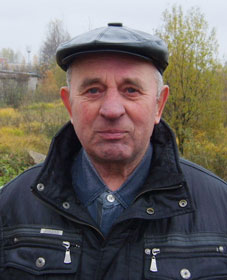UN Human Rights Committee recognizes a violation of the rights of a civil society activist
United Nations Human Rights Committee issued a decision on the communication № 1987/2010, according to which the Republic of Belarus is recognized as violator of the rights of the civil society rights activist Anatol Stambrouski.
In his appeal to the HRC Mr. Stambrouski stated that he was a victim of a violation by Belarus of his rights. The activist intended to hold a picket on April 3, 2009 in the pedestrian zone at the intersection of two streets in Vitsebsk in order to draw public attention to violations of the law by the authorities. However, the picket was banned by Vitsebsk City Executive Committee.
The executive committee stated that the picket would allegedly interfere with the traffic, the movement of pedestrians, violate public safety and order. The activist was also reminded that the intended action site didn't belong to the list of the places designated for mass events by the city authorities.
Anatoly Stambrouski appealed the decision to ban picket in the Kastrychnitski District Court of Vitsebsk, arguing that the executive committee had violated his constitutional right to freedom of expression. The activist tried to prove that the reason for the picket ban were far-fetched and illegal, as one person standing in the pedestrian zone on the corner is unlikely to interfere with traffic. The court ignored his arguments referring to the fact that the regulation of the Vitsebsk City Executive Committee was in line with the Law of the Republic of Belarus “On Mass Events” and dismissed the appeal.
Vitsebsk Regional Court and the Supreme Court of Belarus, at which Mr. Stambrouski appealed the verdict, recognized that the provisions of the Law "On Mass Events" are de facto superior to the constitutional norm guaranteeing the civil right to freedom of expression.
According to the website “Vitsebsk Viasna”, the Human Rights Committee to which the Vitsebsk activist eventually applied, tried several times to get explanations from the Belarusian authorities on the merits of the appeal. However, the Belarusian authorities refused to provide such explanations.
In their communication with the HRC the Belarusian authorities stated that the communication of Stambrouski and some others had been allegedly registered in violation of the Optional Protocol to the International Covenant on Civil and Political Rights, and therefore they would regard any decision taken by the Committee with respect to these communications as legally void. The Belarusian authorities also stated that they were not obliged to accept the rules of procedure of the HRC and the explanation of the Optional Protocol by it.
In itsdecision on Stambrouski's case the HRC specially commented on Belarus' refusal from cooperation: “The Committee reminds that , in accordance with paragraph 2 of article 39 of the Covenant, it has the right to determine its own rules of procedure, which State parties have agreed to accept. It further notes that by virtue of accession to the Optional Protocol the State party recognizes the competence of the Committee to accept and consider communications from individuals who claim to be victims of a violation of any of the rights set forth in the Covenant. From the accession to the Optional Protocol there ensues the duty of the state to cooperate with the Committee in good faith so that it could consider such communications and communicate its position to the State party and the applicant. The Committee notes that, without recognizing its jurisdiction in this matter and in advance stating that it will not accept the Committee's decision on admissibility and merits, the State party violates its obligations under article 1 of the Optional Protocol to the International Covenant on Civil and Political Rights.
Despite the objections of the Belarusian authorities, the Committee considered Strambrouski's appeal acceptable and considered it on the merits. As a result of the consideration the Committee stated that “the State Party did not submit any comments on the merits of the communication ... The national authorities have not explained how during a single picket in the pedestrian zone the applicant could disturb traffic, the order of movement of people, public safety and order in the specified location, and how the restrictions on the author's rights provided for in Article 19 of the Covenant are justified by paragraph 3 of Article 19 of the Covenant. Under these circumstances, the Committee concludes that the author's rights provided for in paragraph 2 of article 19 of the Covenant have been violated."
In its decision the Committee obligs the Belarusian authorities to provide Anatol Stambrouski with an effective remedy, including the reimbursement of legal costs and compensation. According to the decision of the HRC, Belarus should revise its domestic legislation. Also, the state is obliged to take measures to prevent similar violations in the future.
Over the past few years, the UN Committee on Human Rights has recognized dozens of cases of human rights violations in Belarus. Most often Belarusians complain about violations of Article 19 of the Covenant, which guarantees the right to freedom of expression and dissemination of information.


















